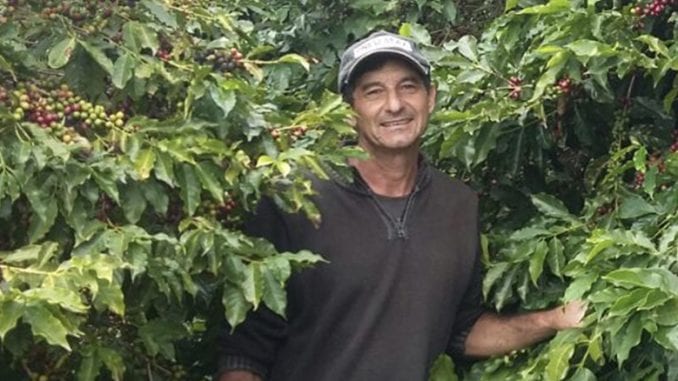
We chat with the owner and producer of the San Geraldo Coffee Farm in the city of Serra Negra, Brazil.
BY JONAS LEME FERRARESSO
SPECIAL TO BARISTA MAGAZINE ONLINE
It has been almost 300 years since the first coffee seeds arrived in the north of Brazil. This centenary crop brings many family lines into the cultivation of this tricky plant, which is beloved by many drinkers, but with its roller coaster of prices in the stock market, it has caused insomnia for many farmers.
During this harvest season, I had the opportunity to chat with Roberto Broto Marchi, a farmer who cultivates his trees at San Geraldo Coffee Farm in the city of Serra Negra, Brazil. His land is located in the São Paulo water region, an area with more than 150 years of coffee tradition. Let’s hear a little about his story and path through the coffee chain.
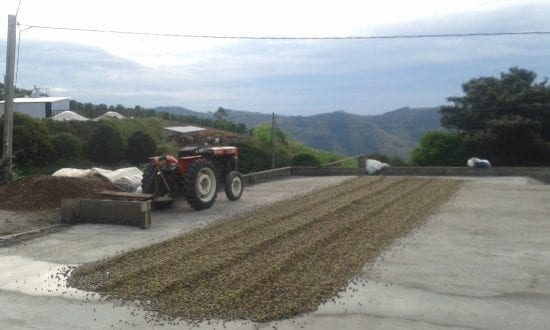
Jonas Ferraresso: Consumers sometimes build an idea of Brazil as a country of giant farms, managed by large companies, with huge machines working. On your coffee farm, how is the coffee handled and harvested?
Roberto Broto Marchi: São Geraldo Coffee Farm is a small and mountainous place; everything is made by hand and familiar. We have only two employees who help us throughout the year in agricultural practices and management. During harvest, we hire extra hands to help us, because in Brazil the picking is concentrated in a few months, and if we take too long to pick, some berries could fall (to) the ground and spoil. Since these coffees are harvested, the management in the drying yards are made by my family, because beans need care, attention, and some kind of affection during the post-harvest, to keep all the qualities until the cup.
For how many generations has your family been in the coffee fields? Where are your family’s coffee pioneers from?
I’m the fourth generation in coffee fields. The first Marchi came from Italy, from the region of Verona, as immigrants in 1895. In that time Italy was in a recession, and Brazil was a nice choice to start a new life. As they arrived here in Serra Negra, (their) first job was taking care of coffee fields in large farms as hand workers and pickers.
What was your first coffee experience?
I was a little boy and lived with my parents and grandparents in the San Lucia Coffee Farm. If I’m not mistaken, I was 6 or 7 years old, I was already with them every day. My grandfather had the whim to make a tiny rake to roll berries, a small hamper to pick ripe fruits, and a broom for me. His intention was certainly to encourage me playfully, since I was a child, to learn the beauty work in coffee and take the family tradition forward. I had a lot of fun playing in coffee fields and embracing the idea of coffee growing.
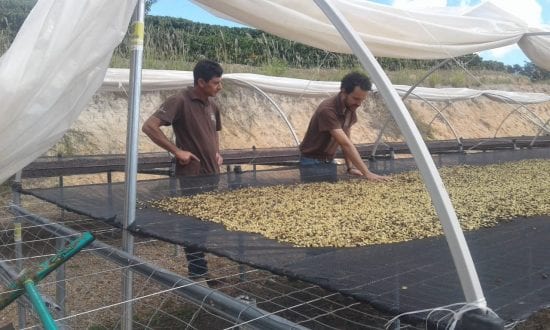
Do you ever work with coffee? What changes have you noticed in the industry over the years?
Yes, I have always worked with coffee and never thought about changing. I started my own business on this same farm (at) the age of 22 years. Over the years I realized that due to the instability of coffee prices, the rally in coffee prices year after year is striking our working capital, so I and my family started to raise the quality of our beans, producing a differentiated product to get better prices, and keep it in business.
How is the work routine on the farm?
Our daily routine is close to 20 hours, seven days a week during harvest season. In coffee fields, there is always something to do. We don’t have a fixed time to work; we start early in the sunrise and only stop when all is done, sometimes after the sun goes down. The employees have fixed working hours between 7 a.m. (and) 4:30 p.m.
Which kinds of beans does your farm grow? Any differentiated beans?
Our family farm produces arabica organics and specialty coffees. I see that (differentiated) beans can help us a lot to continue in business. Without it we might not be able to survive; putting all cards on commodity coffee is very risky. Our experience (has been) very satisfying and rewarding; having a singular and sustainable product like organic coffee opens new opportunities and horizons for us, which encourages us to work (in) fields.
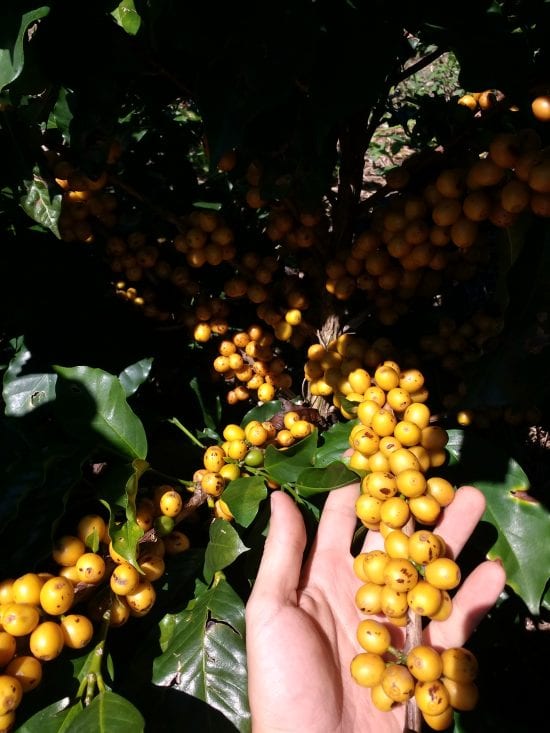
Beyond the green beans, have you developed another strategy to improve your profits?
We have been working with roasted and ground coffee, where we sell the product directly to consumers who appreciate specialty coffee. This has helped us to increase our family income, and we intend to expand this business over time. The beans are carefully selected and roasted on the farm by my wife, so we deliver a full farm experience on the package.
You said that your wife helped you with the business. The organic coffee is a new step in the farm; how has your family support been on this new path?
My family has helped me a lot in this new phase of organic coffee. Organic management requires a lot of attention, care, and responsibility. All the steps and standards were assisted by my wife and children, from helping me to take care of the crops, traceability, and paperwork.
How is coffee important to you and your family?
It is from coffee beans that we make our living, both for my family and also for those who help us during the years, employees, pickers, agronomists, sellers, everyone. We do our work with passion to deliver good and sustainable coffee for drinkers around the world.
What message would you like to say to people who roast, prepare, and consume coffee in the world?
The farmer needs a better and fairer price to keep in business. A region like mine, mountainous, where machines don’t work, the costs are tremendous. The international price instability, usually below the minimum wage, puts the farmer in a bad situation. Our farm is family run and small, so I wish that my children will work with coffee in the future too, but at an unfair price, they believe the business is not worth it. So, if you are a member of the coffee chain, make sure your coffee is sustainable and fair.
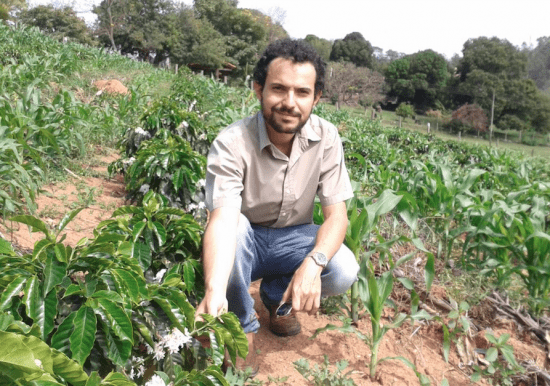
ABOUT THE AUTHOR
Jonas Leme Ferraresso is a coffee agronomist consultant and specialty-coffee professional working across coffee’s full value chain.

